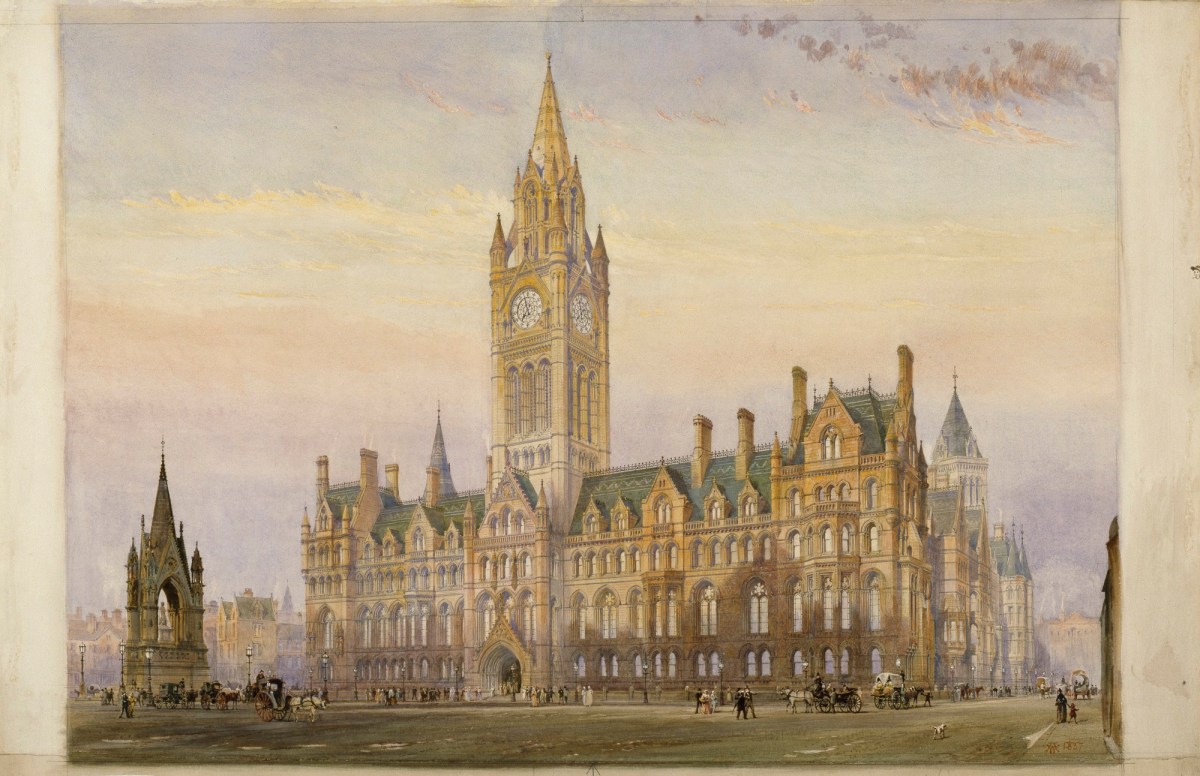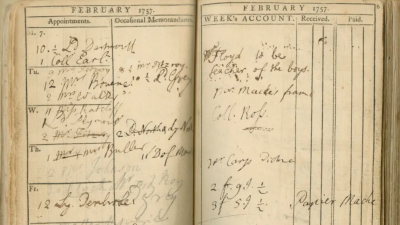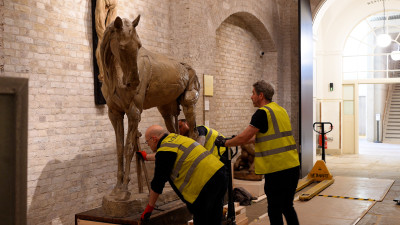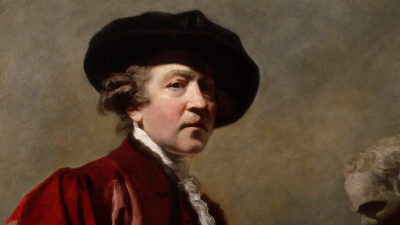
Alfred Waterhouse RA, Record drawing of Manchester Town Hall: perspective, 1887.
Pencil, pen with black ink and coloured washes on laid paper. 762 mm x 1092 mm. © Photo: Royal Academy of Arts, London. Photographer: Prudence Cuming Associates Limited.
This image is not available to download. To licence this image for commercial purposes, contact our Picture Library at picturelibrary@royalacademy.org.uk
Record drawing of Manchester Town Hall: perspective, 1887
Alfred Waterhouse RA (1830 - 1905)
RA Collection: Art
A big man with a bushy beard, Alfred Waterhouse designed colossal Victorian buildings. Born in Liverpool, he undertook his architectural apprenticeship in Manchester, where he started up his own practice. In 1859 he landed the job of building the local Assize Courts, a landmark now demolished, whose appearance marked the emergence of the gothic revival as an acceptable style for public buildings in Britain. By opening another office in London, Waterhouse built up one of the country’s largest architectural practices. His portfolio ranged from the terracotta-clad Natural History Museum in London’s South Kensington to numerous college buildings in Oxford and Cambridge. As principal architect for the Prudential Assurance company, Waterhouse built their fiery red-brick headquarters in London’s Holborn (now renamed Waterhouse Chambers and the headquarters of English Heritage) and, like a brood of little chicks, the company’s branch offices up and down the country.
Alfred Waterhouse secured the job of designing Manchester Town Hall by winning a competition that had been held in stages between 1867 and 1868. The building campaign lasted for a decade. Thus this large watercolour, dated 1887, is not a design but a record of the building after completion given as his Diploma Work. A romantically charged view, it shows the architectural centrepiece of the booming industrial city in all its gothic magnificence. The town hall’s principal front rises over Albert Square, a scene teeming with street life in the smoggy purple haze of sunset. On the left, in shadow, is the memorial to Prince Albert, designed in a sympathetic gothic style in friendly rivalry by the Manchester architect Thomas Worthington. The clock tower of Waterhouse’s town hall soars above the entrance; the large windows on the raised principal storey light four great rooms: the banqueting hall, the reception room, the mayor’s parlour and the council chamber. The right-hand side of the building is only partially glimpsed as it takes the inward angle of Lloyd Street, a configuration that gives the structure its triangular plan and allowed Waterhouse the opportunity of placing an enormous public hall at its centre.
One of the most brilliant architectural watercolourists of his generation, Waterhouse often worked up drawings for presentation. Before adding the watercolour, Waterhouse usually assigned to members of his office the tricky business of setting up the building’s perspective lightly in pencil. For example, in 1868, at an early stage in the design for Manchester Town Hall, Waterhouse and his staff made a watercolour to be shown at the Royal Academy’s Annual Exhibition. The office register records that the assistant George Steane devoted seven days on the drawing before T. Cooper took over and spent a further five, while Waterhouse himself spent three and half days on it (Cunningham and Waterhouse, p. 181). The total expenditure in man-hours on the exhibition drawing, which was less elaborate than this one Waterhouse created for his Diploma Work, was thus in excess of fifteen full days.
Object details
762 mm x 1092 mm




